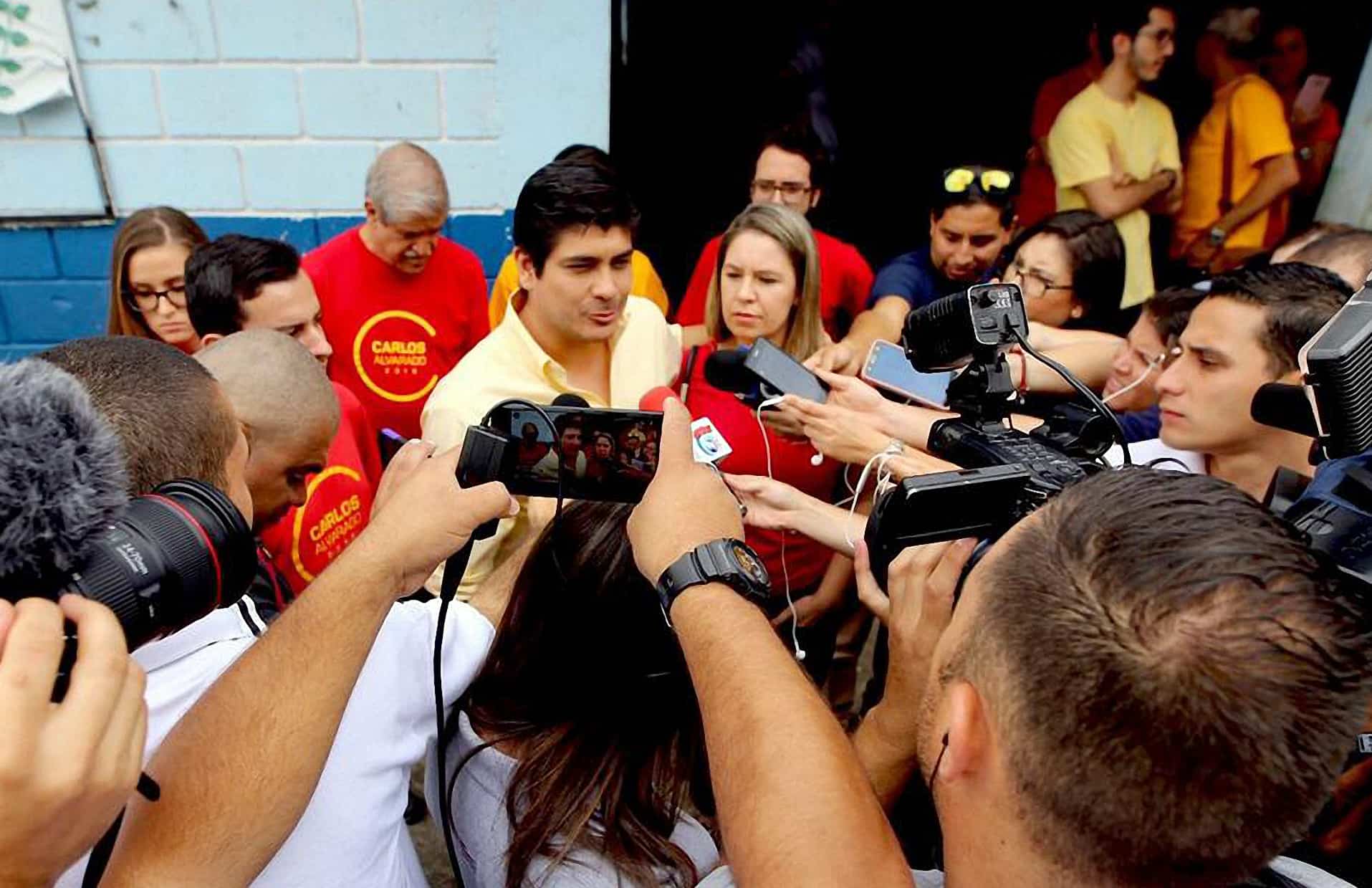Former Labor Minister Carlos Alvarado Quesada has emerged as the victory in the primary election of the ruling Citizen Action Party (PAC) with 56 percent of the vote.
Alvarado defeated former Finance Minister Welmer Ramos, who received 44 percent of the Sunday’s vote, according to a report corresponding to just over 80 percent of polling stations on Monday.
Alvarado, 37, who is a journalist and political scientist, congratulated Ramos and noted that the struggle to keep his party in Casa Presidencial “has just began.”
The candidate joins Antonio Alvarez Desanti of the National Liberation Party (PLN) and Rodolfo Piza Escalante of the Social Christian Unity Party (PUSC), who won their nominations in April and June, respectively.
There are additional parties that have not yet selected their nominees, but these three candidates represent the only parties that have elected presidents during the last four decades. President Luis Guillermo Solís made history when he became the first PAC candidate to win the presidency in 2014.
Other bids
Other politicians who have confirmed their presidential bids for next year include former PUSC candidate Rodolfo Hernández, who now represents the Republican Party. The new group formed around former President — and PUSC founder — Rafael Ángel Calderon Fournier.
The Libertarian Movement will elect its candidate on Sunday, choosing between the party’s founder and four-time candidate Otto Guevara Guth, and Natalia Díaz Quintana. Both are currently serving as legislators.
The Broad Front party did not hold a primary election; lawmaker Frank Camacho Leiva dropped out of their internal race earlier this year, allowing fellow lawmaker Edgardo Araya Sibaja to become the only candidate of the leftist party.
Lawyer Juan Diego Castro Fernández, an ex-PLN member and former Public Security and Justice Minister, will seek the presidency representing the National Integration Party.
Costa Rica will elect a new president, two vice presidents, and 57 new lawmakers on Sunday, February 4, 2018.
According to the Supreme Elections Tribunal, the voters registry is made up of 3,292,962 people, of whom 1,651,814 are women and 1,641,148 are men.







